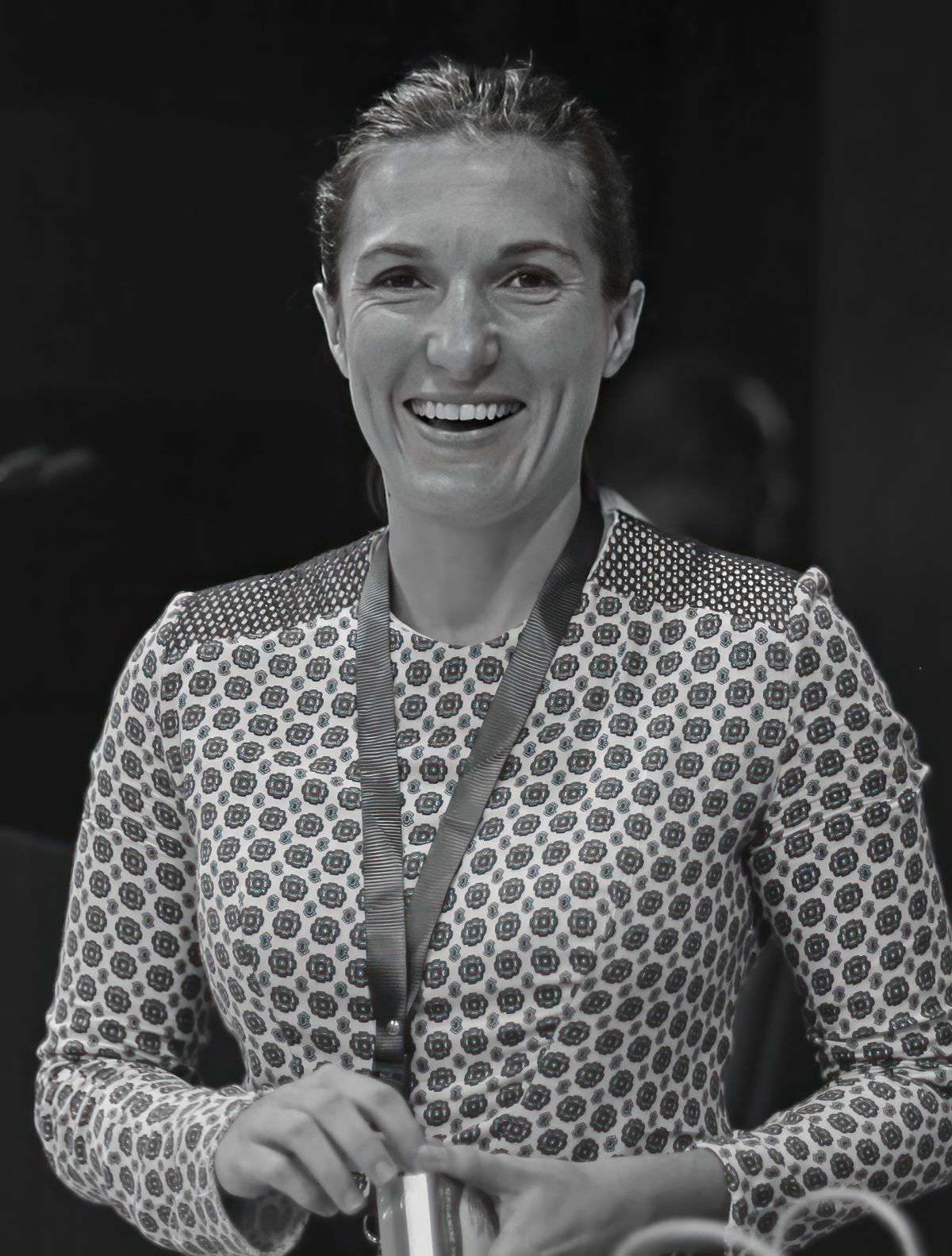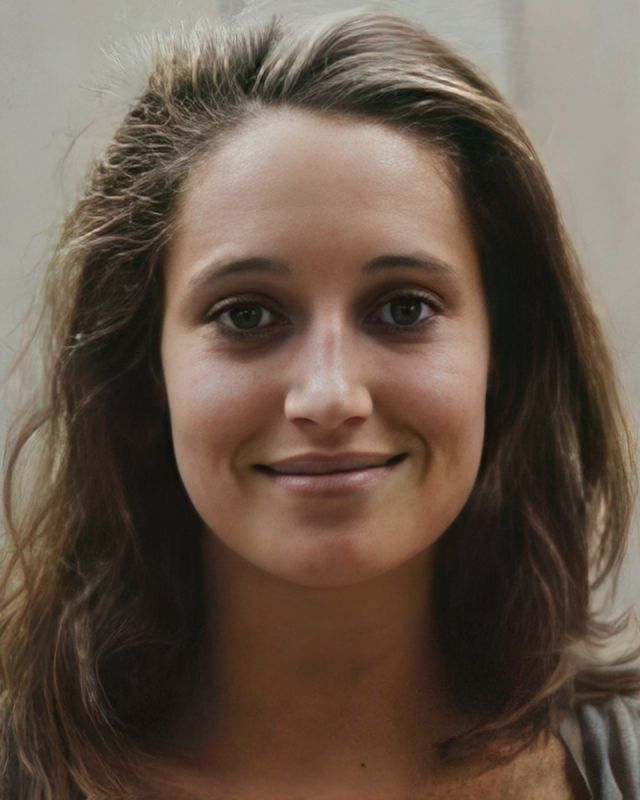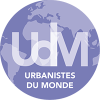Portrait

Suzanne Chatelier - GLM 2013 - An international and sustainable urban planning career
Posted on | Alumni Portrait
Portrait by Lise Patron
To begin with, can you give us a little reminder of your background before GLM and present the reasons that led you to this master?
After completing my university college at Sciences Po, I chose the GLM master's degree. It's quite surprising because I didn't originally want to do urban policies but rather
International Affairs. However, I did my 3A in Johannesburg, a city facing a lot of urban issues, which appealed to me. I thought it would be interesting to study metropolises and try to solve some of their problems, even if it might seem a bit ambitious! After a year of studying in English, I also thought that it would be enriching to do a master's degree oriented towards the international scene and taught in this language. The GLM master was quite young since my class, the one of 2013, is only the second one! I threw myself into the adventure and I haven't regretted it. It was a lot of work but also very enriching: I really met extraordinary people from all over.
What happened next? Where did you do your internship and what did you do there?
I did my final year internship at the UNDP (United Nations Development Program) in Bangkok, Thailand. I was in the "Increasing Growth and Poverty Reduction" team working on sustainability and poverty issues. In parallel, I did my professional dissertation, which allowed me to dig deeper into these topics while having access to UN resources. In this context, I did a comparative study on the "water cities" of Bangkok and Ho Chi Minh City (Vietnam), focusing on the issues of urban poverty, sustainable urban development and risk/vulnerability in slums located along canals. After having followed Olivier Borraz's course, which I had found captivating, what interested me most was natural hazards and my goal was to understand why and how the most vulnerable always find themselves on the front line during this kind of disaster. So I wanted to see what urban policies were trying to respond. The authorities in Bangkok and Ho Chi Minh City do not have the same approach. While the "Baan Mankong" program in Thailand promotes access to land for the most vulnerable communities, encouraging them to improve their direct environment in order to reduce natural risks, among other things, in Ho Chi Minh City, the preferred solution is to relocate the populations, which poses other problems and is not efficient.
And after the Grand Oral, what did you do?
After the Grand Oral, I went back to Bangkok to do another internship. In fact, after obtaining my Master's degree, I enrolled in a Sciences Po Avenir program which was also new, the CAM (Certificat d'Aptitude Managériale) which allowed me to extend my student status for one year: I was thus able to do two other internships that were validated by the CAM.
So I went back to Bangkok to do a 6 months internship at the Asian Disaster Preparedness Center (ADPC), which focuses on natural hazards in urban areas. I was in the Urban Resilience team and I worked on climate change resilience projects in coastal communities in Vietnam.
Afterwards, I went to Gabon, where I grew up, to do another internship in an agency that had just been created: the Agence Nationale des Grand Travaux (ANGT). It was set up by the government to deal mainly with urban planning. This gave me the more technical aspect, less research, that I wanted after my other internships. I was at the interface between 2 teams: planning and sustainable development. I wrote calls for tender by applying the ideas and concepts I had developed during my previous experiences. As I was only there for 6 months, which is very short, I didn't have time to see how the projects evolved.
At the time, this agency worked a lot with the American engineering company Bechtel: so my internship was very international. In 2014, when I did the internship, the economic crisis was starting to set in in Gabon. After I left, many expatriates left Gabon and Bechtel gradually disengaged from the project, even though the group remained present in Gabon.
How did you find your internships?
My internship at the UN was a bit of a fluke. In fact, when I found it, I had already signed up for an internship in the Philippines on risk management. This one I had gotten through a former GLM who was interning there, but I really wanted to go to Bangkok. So I got in touch with a professor of gender studies who was working 6 months in Bangkok and 6 months at Sciences Po. She was at the Asian Institute of Technology (AIT) and she connected me with an acquaintance of hers who was at UNDP: that's how I got this internship. I couldn't say no to the UN, so I turned down the other internship. The UN has a policy of not paying its interns. Therefore, it is possible to get an internship with them relatively easily if you are qualified for the assignment, without any specific contact.
The second internship, which I did, I also had at that time. I also found myself saying "no" to them because I was going to the UN, but I asked them if I could do it later and they accepted.
The one in Gabon, at the beginning, I wanted to do it in the summer, for one or two months, and I had been trying to get an internship there for two or three years: what interested me most was Bechtel. When I went on vacation to Gabon, I met some engineers who worked in the company and who gave me direct contact with HR, which I didn't have. For this internship too, I asked for a postponement and they agreed.
What was your first job?
Following my internship at ANGT, I found my first salaried job in Gabon at an organization called the Gabon Oregon Center. It is a transnational research center on environment and development, the result of a partnership between Gabon and the state of Oregon in the United States, set up in 2014. While the goal was primarily to fund research projects, there was also a sustainable urbanism component that I took charge of. One of their flagship initiatives was to implement a development scheme for the largest university in Gabon (Omar Bongo), located in downtown Libreville. There were a lot of sustainability aspects and it was very well done. However, the implementation phase was complicated. After two years of contracting there, I stopped last year because the partnership was a bit of a mess.
What's next?
I then found a job at the French Embassy in Gabon and in São Tomé and Principe where I am currently. I am not at all involved in urban planning since I am in charge of communication. It's a very formative job because I discovered the internal workings of an embassy abroad: until you've worked there, you never really know what it's like. Communication is also very transversal, which allowed me to touch many fields. For me, it also shows that even if you don't necessarily have the right degree, you can always bounce back.
I will be leaving this job on November 19, 2018 to join the newly created Atlantic Regional Directorate of AFD. It's a kind of Volontariat International (VI) that is actually called Volontariat de Service Civique (VSC). I will be working on the implementation of this department, supporting the director and monitoring various issues, in particular climate change and potentially urban development.
How do you see your future career?
For Martinique, as it is a kind of VI, it is a one-year renewable contract. I hope to stay there for two years. Ideally, and depending on the VSC and the opportunities at that time, I would like to join the AFD group afterwards. I think that we are a generation that has a bit of trouble settling in one place for ten years. That's why the AFD group is interesting because the positions are quite mobile.
What did the GLM master's degree bring you?
First of all, a network. I haven't kept in touch with my entire graduating class, but it's always interesting to see what others are up to, and it allows us to help each other. Sciences Po is a platform: you meet people from everywhere, which is very enriching. Then, it gave me knowledge: as the second year, we were a bit like "guinea pigs" and it was sometimes a bit messy but it was very formative. I don't regret having done this master's degree at all.
My only regret is maybe not having done a more technical complementary training: in the end, you don't really know how to define yourself after the master. I hope that this experience at AFD will give me the knowledge I need.
Finally, would you have any advice for current students?
I think there are all types of people in GLM. Personally, I'm not a "very networked" person, in the sense that I don't like trying to sell myself. I mostly try to take care of my little network of people who have helped me at some point, even if they don't really help me professionally anymore. I think it's appreciated and nice to know that you're in a world where there aren't just sharks who want your network one moment and then forget about you completely. The same goes for the people in my master's program: checking in regularly, not just when I need to. It takes time but I think it's important!
And above all, do what you like and what you are passionate about!
Diane Collier - STU 2018 - Digital Uses and Services Consultant at Tactis
Posted on November 19, 2018
Can you briefly remind us of your background? After the baccalaureate, I did two years of preparatory studies in literature and social sciences in Marseille…
Noémie Fompeyrine - GLM 2015 - Project Manager at the Resilience Mission, General Secretariat of the City of Paris
Posted on April 30, 2018
Can you tell us a little about your background? What led you to the public service? To the resilience mission? After graduating from high school, and before e…
 English
English  Français
Français 




